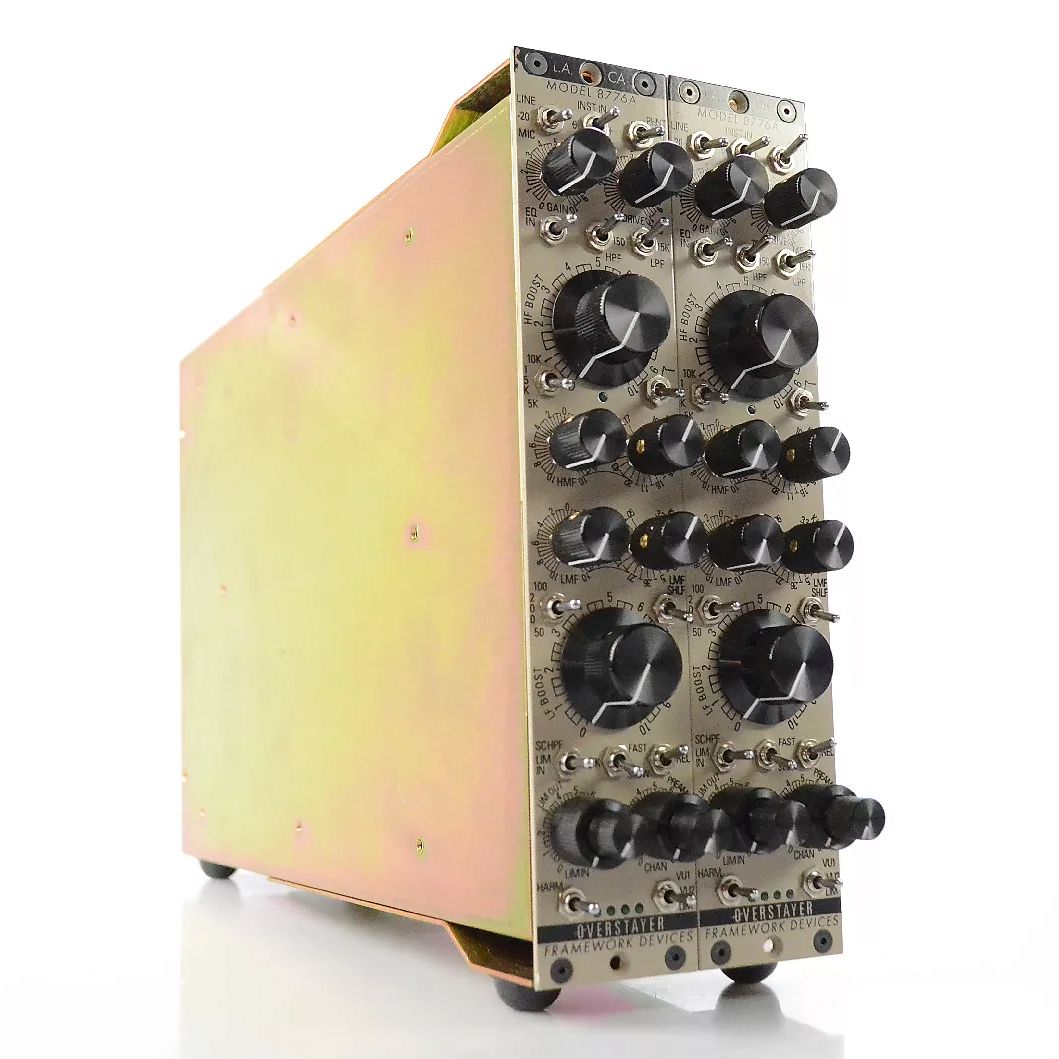Overstayer Imperial Channel 8776A Shop all Overstayer Recording Equipment Inc
Product Description
The 877 series modules are self powered, self contained channels that can be used on their own (no chassis required) or as part of a larger framework for recording and mixing. The 8776A features mic, line, and instrument inputs, as well as filters, 4 band eq, FET limiting, and controls to shape and exploit the harmonic character of the circuitry throughout. Modules can be mounted vertically in dual, quad, or a 10 space rack-mountable chassis (5RU high). Audio connections are via XLR and TRS connectors with access to several points in the signal path.
The Imperial Channel’s preamp and drive amps were inspired by late 60’s English solid state consoles. Their primitive design makes them incredibly forgiving with a wide range of nonlinearities before overt clipping (a wide sweet spot), and with that they are generous with low order harmonics, and can be driven into full distortion. These stages are ‘cushioned’ in this design allowing them to be used exploited in new ways.
The concept of the channel is to have a fluid interactive chain, where creative decisions can be made by immediately by turning controls and switches. Multiple stages distribute the rounding and harmonics, each with different characters. The HARMONICS stage at the end of the chain has MAS circuitry, and can ‘control’ peaks, and smooth harsh frequencies, allowing the equalizer for instance to be approached creatively and aggressively. As an example, the proportional Q bells have a large amount of gain and can be driven almost to the point of oscillation, which can sound raw on its own, but driven into the harmonics circuitry can be ‘absorbed into the signal and become a band of harmonic distortion.
Features:
- Microphone, line, and instrument inputs
- Transformer coupled input and output
- Multiple discrete gain stages
- High and low pass filters
- 4 band equalizer with high and low shelving boosts, and 2 fully sweepable mid bands
- FET Limiting Amplifier with sidechain filter and 3 position attack and release controls
- MAS harmonics
- Independent preamp (dry) and channel (wet) output faders for parallel processing
- Polarity, pad and phantom power
- 4 segment level and gain reduction metering
- Choosing a selection results in a full page refresh.
- Opens in a new window.






